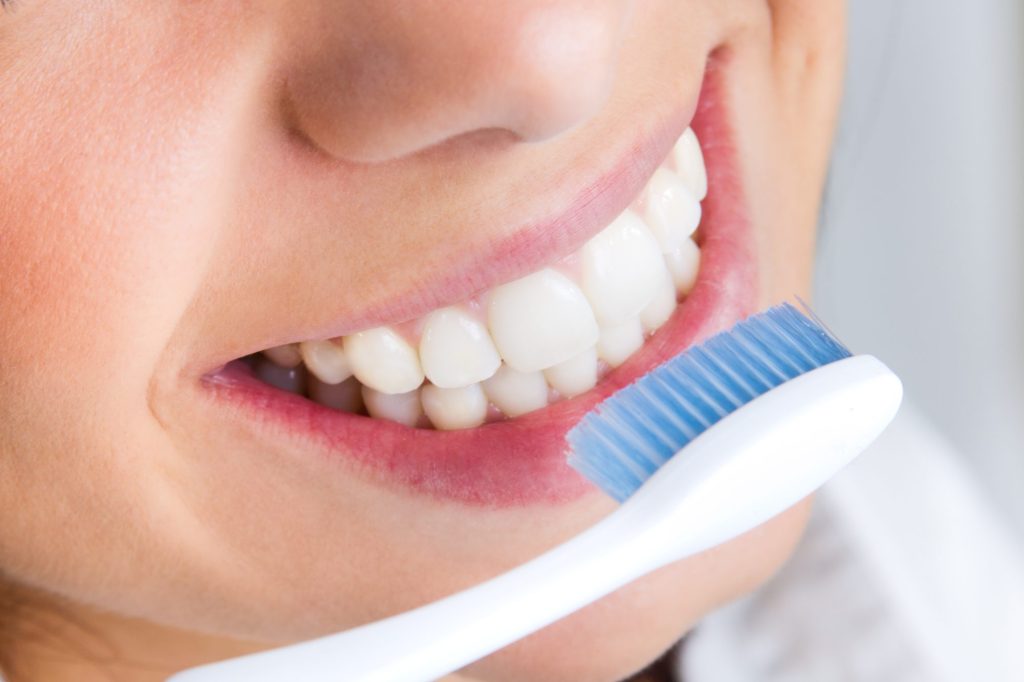When most people think about oral health, they usually just think about their teeth and gums. Oral health, however, has a strong link to the general health of a person’s body. In fact, oral health is actually linked to a variety of systemic illnesses, including diabetes. As a result, there is a strong connection between diabetes and oral health. Individuals who have poor oral health (such as a periodontal disease diagnosis) are more likely to have or develop diabetes and individuals who have been diagnosed with diabetes are more likely to develop oral health problems.
For this reason, it’s essential to maintain good oral health to protect the health of your body. If you have already been diagnosed with diabetes, it is essential that you make sure your dentist is aware of your diagnosis and pay close attention to your oral hygiene to safeguard your teeth and gums.
How Diabetes Affects Oral Health
Diabetes elevates the blood sugar and can also result in a reduction of blood flow to vital structures inside your mouth. As a result, this puts individuals with diabetes at an increased risk of developing conditions such as tooth decay, cavities, and bacterial infections of the bones, periodontal ligaments, and gums (the structures that support your teeth).
Dentists are sometimes the first healthcare providers to observe signs and symptoms of untreated diabetes in patients because the illness can result in several oral symptoms. These oral indications of diabetes include:
- Gingivitis, periodontal disease (gum disease), and/or advanced periodontitis
- Dry mouth (xerostomia)
- Persistent or excessively bad breath
- Oral burning sensation (burning mouth syndrome)
- Mouth sores that do not heal or heal slowly
- More frequent infections
- Frequent oral yeast infections (thrush)
- Enlarged salivary glands
In addition to these signs and symptoms sometimes being the way some patients’ diabetes cases are detected, individuals who have already been diagnosed with diabetes are more likely to develop and suffer from these oral health issues. Of the concerns listed, periodontal disease is perhaps the most serious.
What Is Periodontal Disease?
Periodontal disease is a bacterial infection of the gums and other structures in the mouth (periodontal ligaments and jawbone). Individuals with diabetes are at an increased risk of developing periodontal disease because they have higher levels of sugar in their bodies, and bacteria feed on sugar which means that diabetes helps the bacteria responsible for periodontal disease to thrive.
Periodontal disease is also associated with several other systemic illnesses such as cardiovascular disease, rheumatoid arthritis, certain types of cancer, and dementia. So, if you have diabetes, it is important to work closely with your dental care provider to keep periodontal disease at bay.
Gingivitis
In its earliest stages, periodontal disease is referred to as gingivitis. This stage is marked by symptoms such as:
- Sore gums
- Bleeding gums
- Receding gums
- Swollen gums
- Red gums
- Persistent bad breath
- Tooth sensitivity
Gingivitis can usually be managed with strategies designed to keep bacterial growth in check. This usually includes more frequent professional dental cleanings, good oral hygiene practiced at home, and antibacterial mouth rinses.
Periodontitis
As periodontal disease progresses, the infection worsens and spreads to the structures that support and hold teeth in place (periodontal ligaments and jawbone). The infection breaks down these structures, leading to severe oral damage. This more advanced stage of periodontal disease is called periodontitis.
In addition to the symptoms of gingivitis, periodontitis is also marked by the following symptoms:
- Loose teeth
- Tooth loss
Periodontitis and its effects cannot be completely reversed. It can be managed with good oral hygiene and more frequent dental cleanings, but patients with periodontitis typically require additional treatments such as scaling and root planing, oral trays with antibacterial gels, gum surgery, and even reconstructive surgery to restore their teeth.
How to Safeguard Your Oral Health If You Have Diabetes
If you have diabetes, preventive dentistry and good oral hygiene will be key to safeguarding your teeth and gums. Consistently taking good care of your teeth and gums is essential to preventing problems like periodontal disease, dry mouth, yeast infections, and burning mouth syndrome.
If you have been diagnosed with diabetes, we recommend:
- Notifying your dental care provider about your diabetes diagnosis and the medications you take.
- Keeping your blood sugar in check by managing your diet and medications.
- Brushing and flossing at least twice a day.
- Rinsing with an antibacterial (alcohol-free) mouthwash.
- Removing and thoroughly cleaning your dentures.
- Not using any form of tobacco.
- Visit your dentist for an examination and professional cleaning at least every six months (more frequently if you have already developed periodontal disease).
If you have diabetes, our dentists can provide you with additional oral care strategies that are personally tailored to your needs based on your condition and oral health goals.
Periodontal Disease Treatment in Dayton and Miamisburg
At South Dayton Smiles, our dentists strive to help each of our patients to avoid periodontal disease and the general health risks it poses with high-quality preventive dental care. However, despite taking good care of their teeth and gums, some patients can still develop periodontal disease, and we provide comprehensive care to help these patients address, manage, and combat the bacterial infection to restore their oral health.
To learn more about periodontal disease, its connection to diabetes and your general health and wellbeing, periodontal disease prevention, and periodontal disease treatment, we encourage you to schedule an appointment with one of our experienced dentists at South Dayton Smiles today.

 Meet Dr. Botti
Meet Dr. Botti Meet Dr. Scranton
Meet Dr. Scranton
 Patient Forms
Patient Forms Online Bill Pay
Online Bill Pay Benefit Program
Benefit Program Your First Visit
Your First Visit